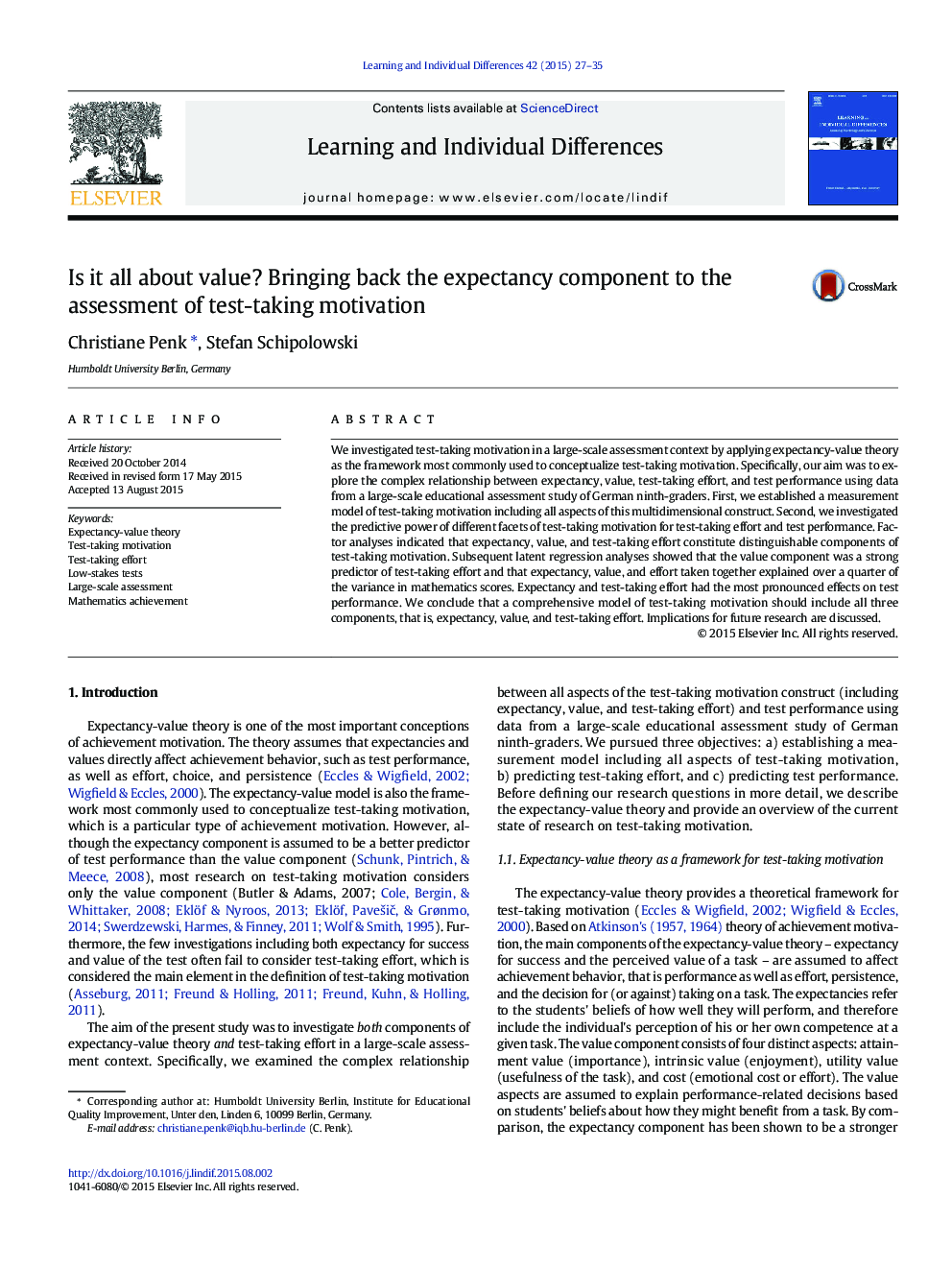| Article ID | Journal | Published Year | Pages | File Type |
|---|---|---|---|---|
| 364564 | Learning and Individual Differences | 2015 | 9 Pages |
•We investigated the relationship between test-taking motivation and performance.•Perceived value was the best predictor of test-taking effort.•Expectancy for success and test-taking effort in turn predicted test performance.•Effort fully mediated the relationship between attainment value and performance.
We investigated test-taking motivation in a large-scale assessment context by applying expectancy-value theory as the framework most commonly used to conceptualize test-taking motivation. Specifically, our aim was to explore the complex relationship between expectancy, value, test-taking effort, and test performance using data from a large-scale educational assessment study of German ninth-graders. First, we established a measurement model of test-taking motivation including all aspects of this multidimensional construct. Second, we investigated the predictive power of different facets of test-taking motivation for test-taking effort and test performance. Factor analyses indicated that expectancy, value, and test-taking effort constitute distinguishable components of test-taking motivation. Subsequent latent regression analyses showed that the value component was a strong predictor of test-taking effort and that expectancy, value, and effort taken together explained over a quarter of the variance in mathematics scores. Expectancy and test-taking effort had the most pronounced effects on test performance. We conclude that a comprehensive model of test-taking motivation should include all three components, that is, expectancy, value, and test-taking effort. Implications for future research are discussed.
